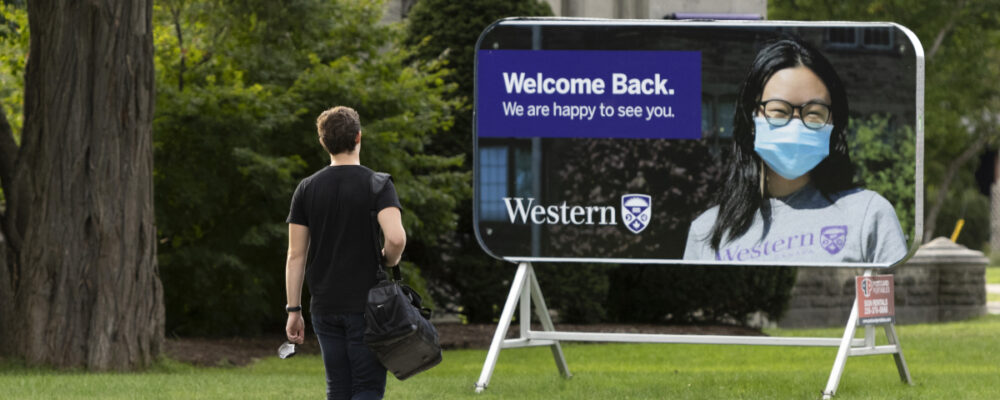President Joe Biden may not be technically correct when he said that the pandemic is over, but the end is indeed in sight. This is the message from the World Health Organization — a message that resonates with what we are witnessing on the ground in Canada and abroad.
Governments have largely respected the fading nature of the pandemic and responded appropriately. Long gone are vaccine cards for dining out or going to the movies. Mask mandates have almost entirely disappeared. Testing for COVID-19 is not the imperative it once was. Words like isolation and quarantine have fallen out of common parlance.
Yet, in Canada, rules of this sort still apply in some contexts or did so until recently. Members of the Canadian Armed Forces continue to be subject to a vaccine mandate. Some Canadian universities still require proof of vaccination on campus. And the freshly former rules around travel into Canada — vaccination, masks, isolation, and quarantine — garnered much criticism, with good reason. Canada steadily became the global outlier in this regard. In a move that was long overdue, the federal government finally dropped these rules on October 1.
Less attention has been paid to persisting mandates at certain workplaces. It remains relatively common to see vaccination as a condition of employment in advertisements for private sector jobs. In the public service, the vaccine mandate for federal employees disappeared in June but not all governments have followed suit. Provincial employees in British Columbia must still be vaccinated with two doses. The same goes for healthcare workers in hospitals and long-term care facilities in that province. Vaccine mandates also remain in place for employees of municipal governments in certain provinces.
These rules hinder many Canadians from adequately providing for themselves and their families. Most employees who did not comply with these mandates lost their jobs or were put on unpaid leave. Regardless of why they decided against vaccination, this decision had serious consequences on their lives. These departures from the workforce have also contributed to the labour shortage in this country. Reinforcements are desperately needed in many sectors. The closures of emergency rooms that we have witnessed this year reveal that healthcare is a prime example.
Apart from the bread-and-butter ramifications of these mandates, there is also the question of how effective they are today. Since these mandates were imposed, COVID-19 has evolved significantly: hence the new vaccines for the Omicron variant and subvariants. The short story is that the evolution of the virus has rendered a two-dose vaccine mandate rather impotent.
As for how impotent, a study published in the New England Journal of Medicine earlier this year found that the original vaccines offer minimal protection from Omicron around six months after the second dose. Most Canadians received a second dose last year, and only half of the Canadian population has received a booster thus far. The upshot, from a public health standpoint, is that there is little to no difference between an employee with two doses and an employee with no doses.
We therefore find ourselves at a fork in the road. Do we update the remaining vaccine mandates to require boosters and doses of the new bivalent vaccine? Or do we recommend these steps, defer to personal decision-making, and bring an end to vaccine mandates?
I believe we should choose the latter path. Between the disconnect in requiring vaccination at work or on campus but not in other spheres of life, the combined effect of existing vaccination rates and natural immunity, and our ever-increasing capacity to manage COVID-19 as we do other respiratory illnesses, the justification for continuing to impose extraordinary rules which were always meant to be temporary is no longer present and arguably vanished months ago.
And when mandates are lifted, employers should strive to reinstate individuals who lost their jobs due to non-vaccination. Many of these individuals are ready and willing to return to careers that they saw as their calling and in which they excelled. Where reinstatement is feasible, it seems punitive to not afford these individuals this option. It also undermines the goal of putting the pandemic — in all the ways it has manifested itself — squarely in the rear-view mirror.
Balancing the many interests at stake during the pandemic has never been easy. No decision has pleased everyone, and the same will be true in this case. But lifting mandates is not a callous decision. It does not devalue the many lives that have tragically been lost to COVID-19. Nor does it belittle the adversities faced by individuals who live with health complications after recovering from the virus. Our ability to treat the virus will only improve, and public health authorities will continue to monitor the virus for unexpected changes that may warrant a change in approach.
Lifting mandates furthers the objective of not allowing COVID-19 to dominate our lives and society – an objective we can pursue in good conscience given what the metrics are telling us. The need for a war footing toward the virus has passed, and needlessly maintaining this posture is harmful to the common good. It is time to close the chapter on mandates not just because we want to, but because we can.
Moving forward, we would do well to respect the choices of others on matters like vaccination and masking. We often do not know the stories behind these choices, and we have no right to know. We have endured much social upheaval these years, and some bruises have not yet healed. But if we opt for courtesy and consideration, turning the page on mandates need not be a source of further turbulence.
We have come a long way since March of 2020. We have, from day one of the pandemic, longed for it to end. Scientifically speaking, that moment is on the horizon. But certain side effects of the pandemic will not disappear on their own. It is up to us to make them follow the science. The time to do so has come.




